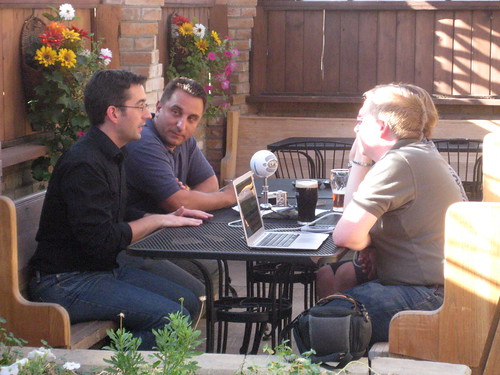Project Tomorrow has released its “Selected National Findings“, an analysis of data from online surveys, focus groups and interviews of parents, teachers, school leaders and students in the US. Project Tomorrow touts itself as “the nation’s leading education nonprofit organization dedicated to ensuring that today’s students are well prepared to be tomorrow’s innovators, leaders and engaged citizens of the world.”
These findings were particularly interesting to me.
Re: Filters (both technical and human) –
Students’ frustration with school filters and firewalls has grown since 2003, with 45% of middle and high school students saying now that these tools meant to protect them inhibit their learning. And since 2004 we have heard repeatedly and more strongly each year, students’ discontent with school rules that limit their access to technology at school and rules that prohibit them from using at school the very technology tools and devices that they use constantly outside of school (cell phones, email, IM, Text messaging) in all aspects of their lives. That discontent factor has grown by 46% over the past four years. The other major obstacle today is the teacher – over 40% of students in grades 6-12 cite their teacher as an obstacle since it is the teacher who increasingly is limiting the “when and where†of using technology at school.
Re: Personal Learning –
When asked how their school could make it easier for them to work electronically, almost 2/3rds of middle and high school students said “let me use my own laptop, cell phone or other mobile device at school.†50% would like to be able to access their school work related software applications and projects from any computer in the school network and have unlimited Internet access on campus. Students also would like tools to help them communicate with their classmates (45%), their teachers (34%) and to organize their schoolwork (42%).
Re: Emerging Technologies –
Over 50% of students in grades 3-12 would like to see more educational gaming in their 21st century school; only 16% of teachers, 15% of administrators, and 19% of parents endorse that concept. While 53% of middle and high school students are excited about using mobile devices within learning, only 15% of school leaders support that idea. Less than half as many parents as students see a place for online
learning in the 21st century school. And even fewer teacher, parents and school leaders want students to have access to emails and IM accounts from school.
Re: Student-Directed Change –
As one high school student in a recent focus
group told us, his vision for the ultimate school is a school where the teachers and the principal actively seek and regularly include the ideas of students in discussions and planning for all aspects of education, not just about technology. As the student so eloquently said, “This is about our future after all. Our ideas should count, too.â€
There are many familiar themes here, yet the same barriers exist. While it is great to see another report supporting much of what is written daily in my corner of the edublogosphere, I am looking forward to reading a report that describes the results of a project in an educational context where many of these barriers have already been addressed.



